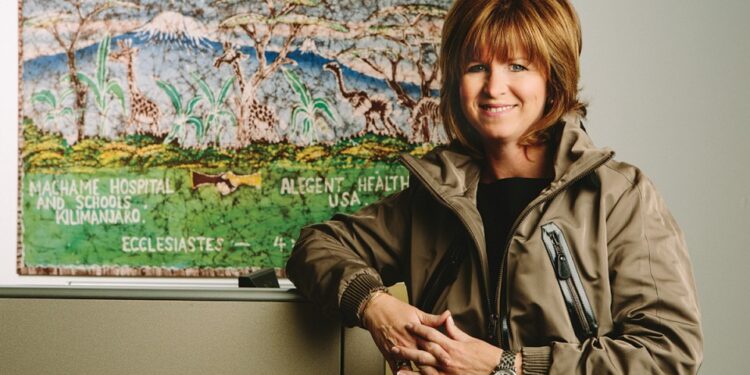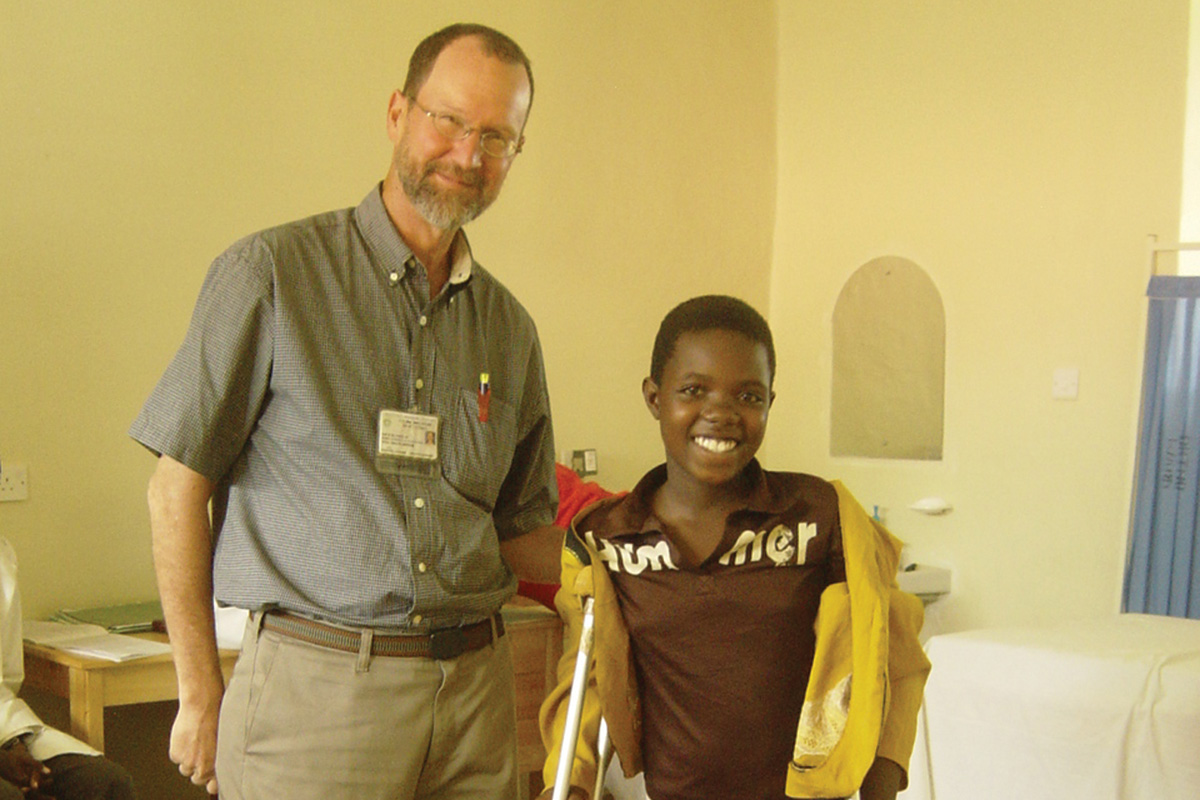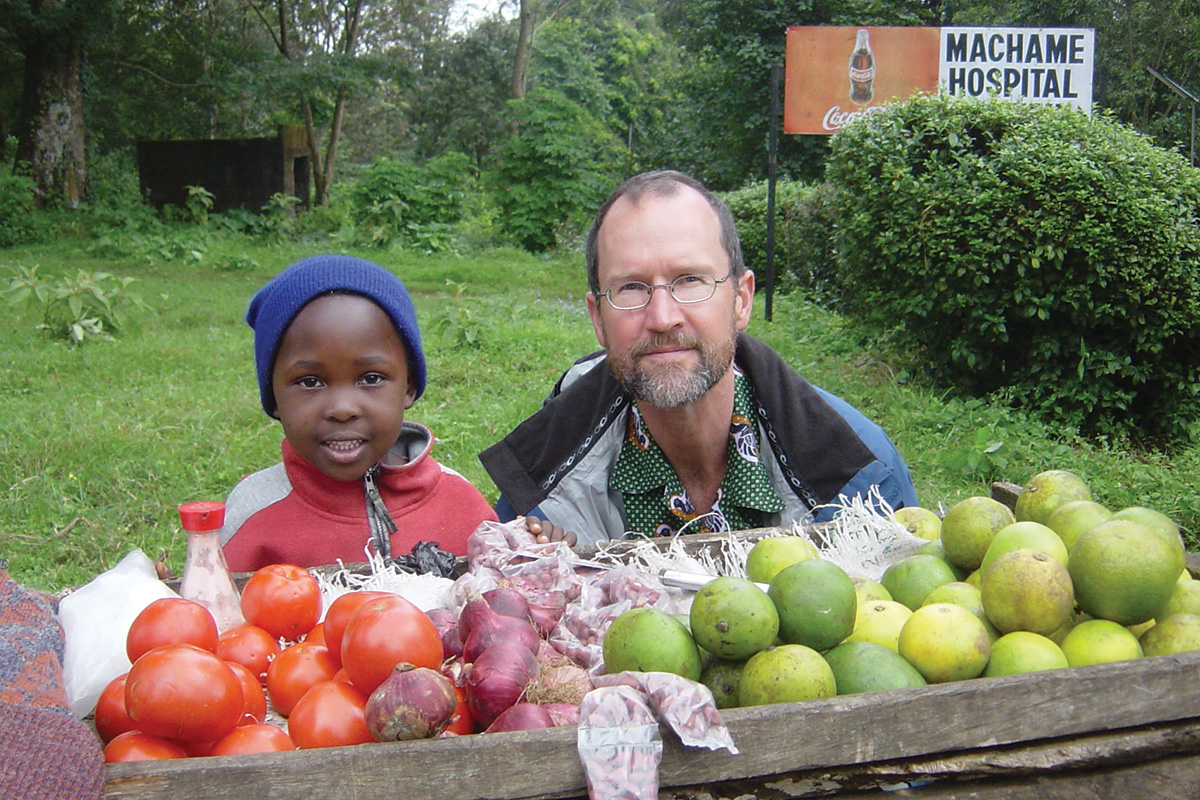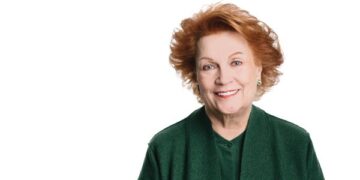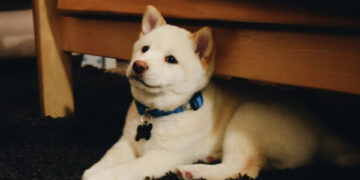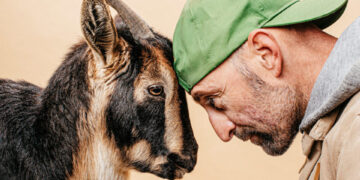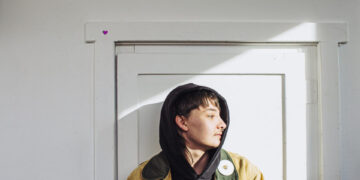Life-changing work by Alegent Creighton Health in Tanzania is the focus of a forthcoming documentary from a one-time Omaha television news personality. When former KMTV anchor-reporter Mary Williams and videographer Pete Soby travel to the African nation in February, their main point of contact will be ACH’s man-on-the-job there, Bob Kasworm, whose life has been transformed by the calling he follows in that distant land.
Kasworm, a biomedical engineer and devout Christian, combines career and faith in Tanzania, his home the last 10 years.
“This was never in my plans,” says Kasworm. “I really wasn’t thinking I would ever go to Africa or have a life of service,” he says.
He first visited in 2001 on a Nebraska Synod of the Evangelical Lutheran Church of America-sponsored trip. He went to evaluate the potential of Alegent assisting hospitals, dispensaries, and public health programs there.
The pull of Africa began then.
“From the very first trip there was never a day and rarely an hour when Africa was not on my mind,” he says. “Yes, it was the poverty and the need, but it was more than that. Somehow Africa just got into my blood.”
He made a dozen or so additional visits in a three-year span as Alegent committed itself to working with the evangelical church and various health and civic partners in Machame, an area on the southeastern slope of Mount Kilimanjaro. He cultivated and coordinated the growing relationship between the partners and implemented various initiatives.
The organization’s efforts there include training medical staff at Machame Hospital, developing Machame Nursing School, providing nursing scholarships, and delivering medical equipment and supplies. Kasworm leads the Homes for Health program that uses local laborers to build new, cleaner, safer homes for residents.
At the end of 2004 Kasworm decided to live in Tanzania full-time. He says it was then his wife “realized that what she thought was just a temporary ‘mid-life crisis’ was something I was powerless to resist.”
He’s since learned Swahili well enough to speak it fluently.
Machame Lutheran Hospital, founded some 110 years ago by German missionaries, is at the center of much of Alegent’s work there.
“We have the hospital with about 120 inpatients and many outpatients and clinics,” he explains. “We also have a Clinical Officer Training school and now the nursing school. There are about 20 homes for staff.”
The campus is on a rare paved road. There’s running water (“usually”), electricity (“much of the time”), and internet access (“slow”).
Progress is plodding but rewarding.
“The most satisfying thing is that, in many cases, if not for our efforts and involvement many would simply not get help,” he continues. “A child with a club foot would become an adult with a club foot. The nursing student would not have had a chance to study. It is not like you can just go down the street to an alternative. There is no safety net. We do it, or it won’t happen. We can now point to a number of successes.
“There is such a shortage of trained healthcare workers that our efforts in education may well be our biggest legacy. If you educate one nurse they will care for thousands over their career.”
Williams, who interviewed Kasworm on one of his periodic visits to Omaha, describes him as a “strong, driven” man who “sees opportunities where others don’t.”
ACH mission integration consultant Lisa Kelly says, “He’s so embedded in that culture now it’s amazing. He’s definitely a problem-solver, which is huge in that country. Everything from unloading containers of things we send to fixing machines to keeping a water source going or getting an internet connection set up…you name it, Bob is the guy who figures out how to do it.
“He has to navigate what’s possible in the developed world with what’s possible there in that culture and that setting. So you have to think of medicine in a whole new way and what he has been able to do is to bridge that gap.”
Williams and Soby are eager to capture the story from a grassroots perspective.
“You can’t really tell the story without talking to the people on the ground who are being helped, and that would start with the patients coming through the door,” says Williams. “You cannot tell the story without talking to all the players—the patients, the nurses, the young women who have a fighting chance now. We can’t tell the story unless we go past the borders and see how exactly the people live and the challenges they face every day. We’re going to experience that first-hand. It doesn’t get any better than that.”
When Williams left KM3 in 2009 and launched her own marketing and media production company, she set her sights on telling stories that engage people’s hearts and minds. From reporting medical news she knew Alegent had compelling stories to be told and she wanted to be the storyteller that shared them.
There wouldn’t be a Tanzania story without Kasworm, whose year-round presence in that county makes the Alegent Creighton mission model unique. Much emphasis is placed on building relationships and making connections through ministry and medical mission trips organized by ACH and the Nebraska Synod of the ELCA.
For Williams, whose only previous overseas assignment was covering local airmen serving in Desert Storm, it’s an opportunity she couldn’t pass up.
“I’m sure it’s going to be a life-changing experience.”
She and Soby expect to complete the 30-minute documentary in the spring.
Kasworm sees the project as another vehicle to foster awareness between Tanzanians and Americans.
“Our experience lets us serve as a bridge between the cultures and reduce misunderstandings. It seems much of our important work has not come from analysis or needs assessment. The work has just found us. I am sure more will present itself.
“As long as the doors keep opening and my health stays good, I hope to continue.”
Read more of Leo Adam Biga’s work at leoadambiga.wordpress.com.


